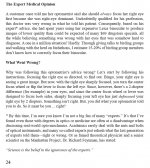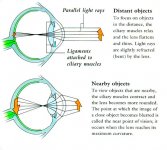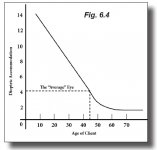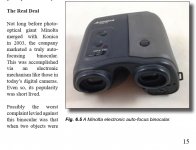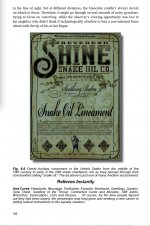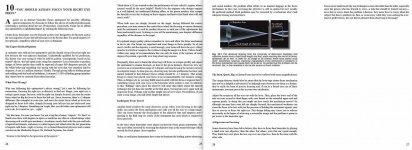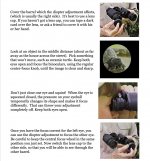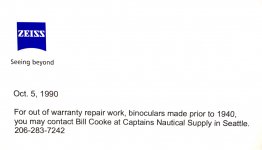WJC
Well-known member
Bino Thoughts #3
I know I’m a fellow who bellyaches about those who stack BBs and talk forever about things that are inconsequential to most observers. Even so, having experienced what I have, I must stack a few BBs here. Please forgive me.
Reading a thread currently on the forum, one could come away with the idea that you just set and forget the DIOPTER setting. There is, however, something more to be said. Not to MOST birders, or long-time binocular users, but not all new observers fit into those categories.
1. I guess DIOPTER adjustment sounds cooler. But it is nothing more than another name for a FOCUS MECHANISM. The center wheel on a center-focus binocular is never looked at as a diopter adjustment. But that’s exactly what it is. Does it focus one eye, usually the left? Then it is a diopter adjustment. Please see attachment #1.
2. Auto-focus binoculars are a misleading marketing ploy with many advertisers buying into the concept. And PERMA-FOCUS is just another scam to get money from the terminally trusting and massively inexperienced consumer. There is no such thing as a non-electronic auto-focus binocular. * These binoculars depend on the stretching or compressing of the eyelens via the ciliary muscles (attachment #2) to focus the image. Thus, the binocular does nothing. It is not somehow magic and does not defy the laws of physics. It forces your eyes to focus ... at least if you are young enough. (attachment #3) This can cause a little or a lot of eyestrain and causes the observer who hasn’t learned to stare to keep wasting time fiddling with the focus.
3. Most birders know that IF (individual focus) binoculars are the bane of enjoyable bird watching. However, someone new to BirdForum and using an individual focus binocular could come away with very wrong information as BOTH diopter rings must be adjusted for each DISTANCE observed.
Finally,
4. The center wheel or flip-lever on a center focus binocular focuses BOTH sides. If you have adjusted the right eye—correctly, after focusing the left eye at a given distance—that won’t matter as the diopter for the right eye will keep your correction in sync as you change your observing distance with the center wheel or flip-lever.
5. Now for the BB stacking caveat. While the diopter setting will usually get you into a focus that causes no severe eyestrain. The nitnoids in our group may want to know that there is no perfect focus. Focus will change with fatigue, headaches, alcohol use, caffeine use, prescription drug use, or too much or too little water in the system. Is that something to worry about? Only if you are one of those people who can’t function without something inconsequential to worry about.
See ... something for everyone. :cat:
I know I’m a fellow who bellyaches about those who stack BBs and talk forever about things that are inconsequential to most observers. Even so, having experienced what I have, I must stack a few BBs here. Please forgive me.
Reading a thread currently on the forum, one could come away with the idea that you just set and forget the DIOPTER setting. There is, however, something more to be said. Not to MOST birders, or long-time binocular users, but not all new observers fit into those categories.
1. I guess DIOPTER adjustment sounds cooler. But it is nothing more than another name for a FOCUS MECHANISM. The center wheel on a center-focus binocular is never looked at as a diopter adjustment. But that’s exactly what it is. Does it focus one eye, usually the left? Then it is a diopter adjustment. Please see attachment #1.
2. Auto-focus binoculars are a misleading marketing ploy with many advertisers buying into the concept. And PERMA-FOCUS is just another scam to get money from the terminally trusting and massively inexperienced consumer. There is no such thing as a non-electronic auto-focus binocular. * These binoculars depend on the stretching or compressing of the eyelens via the ciliary muscles (attachment #2) to focus the image. Thus, the binocular does nothing. It is not somehow magic and does not defy the laws of physics. It forces your eyes to focus ... at least if you are young enough. (attachment #3) This can cause a little or a lot of eyestrain and causes the observer who hasn’t learned to stare to keep wasting time fiddling with the focus.
3. Most birders know that IF (individual focus) binoculars are the bane of enjoyable bird watching. However, someone new to BirdForum and using an individual focus binocular could come away with very wrong information as BOTH diopter rings must be adjusted for each DISTANCE observed.
Finally,
4. The center wheel or flip-lever on a center focus binocular focuses BOTH sides. If you have adjusted the right eye—correctly, after focusing the left eye at a given distance—that won’t matter as the diopter for the right eye will keep your correction in sync as you change your observing distance with the center wheel or flip-lever.
5. Now for the BB stacking caveat. While the diopter setting will usually get you into a focus that causes no severe eyestrain. The nitnoids in our group may want to know that there is no perfect focus. Focus will change with fatigue, headaches, alcohol use, caffeine use, prescription drug use, or too much or too little water in the system. Is that something to worry about? Only if you are one of those people who can’t function without something inconsequential to worry about.
See ... something for everyone. :cat:
Attachments
Last edited:




